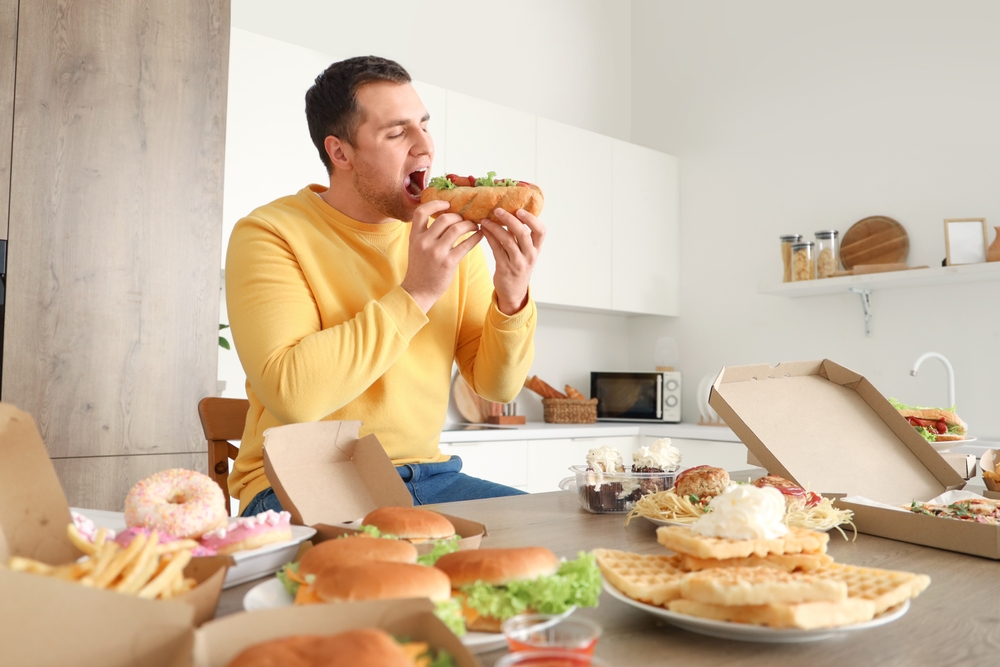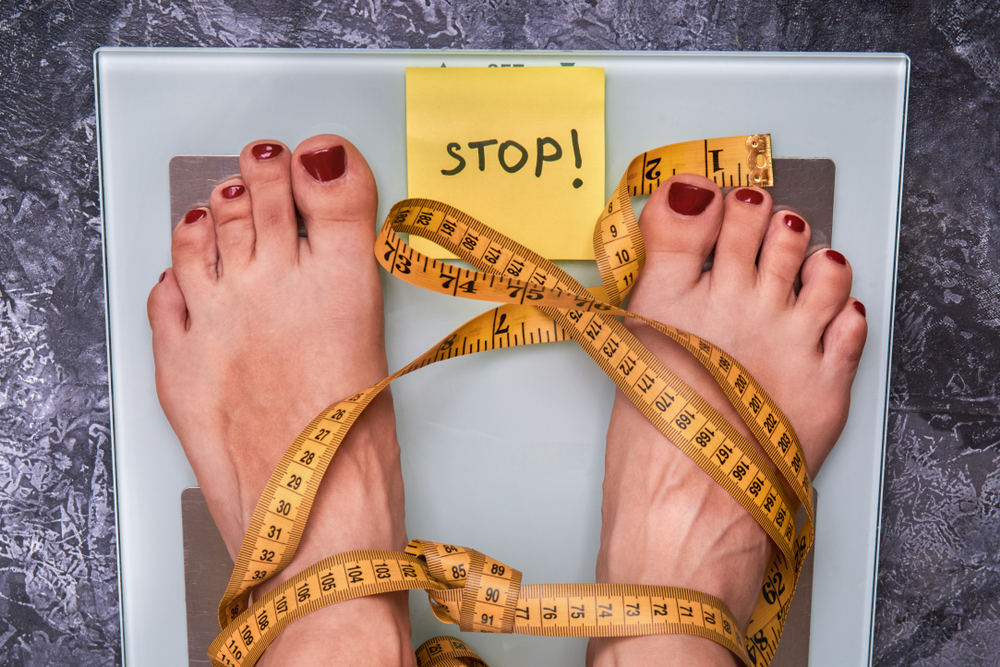Last Updated:
July 21st, 2025
Local Overeaters Anonymous (OA) Meetings
What is Overeaters Anonymous?
Overeaters Anonymous began in 1960 in Los Angeles when a woman named Rozanne S. saw how the 12 steps used in Gamblers Anonymous might help her address her struggles with food. She reached out to others who felt the same way and soon, a small group formed around the idea that compulsive eating was not a lack of willpower but something that needed its own path to recovery. That group grew, and today, OA has meetings around the world.
OA’s goal is to help people find peace and recovery around food and body image by following the 12-step model. The fellowship welcomes people of all shapes, sizes, backgrounds and food behaviours. There are no weigh-ins, no diets and no judgement, just a shared willingness to heal.

Who is OA for?
OA isn’t just for people who eat too much. It’s not just for people who are overweight, either. It’s for anyone who feels like food has taken over more space in their mind and life than it should. Some members struggle with bingeing, others with restriction, some with obsessive food thoughts and others with cycles of dieting that never seem to end.
You don’t need to have a certain look or diagnosis to belong in OA. Many members have experienced the exhausting cycle of starting over every Monday, swearing off certain foods or hiding their eating from others. You might have a complicated history with food that no one really understands. OA offers a space where you don’t have to explain or justify that anymore.
If food feels like a secret battle or if your day revolves around what you’ll eat, avoid or punish yourself for, OA may be a good place to start reconnecting with yourself.
What happens at an OA meeting?
The first time you go to an OA meeting, it might feel strange to walk into (or log into) a room of strangers and sit down to talk about food. But the format is calm, structured and designed to make it feel as safe and welcoming as possible.
Most meetings begin with a few readings from OA-approved literature. These include the 12 Steps, the 12 Traditions and sometimes a reading from the OA daily meditation book or another recovery-focused piece. These set the tone and remind everyone why they’re there.
After the readings, members are invited to share their experiences. Some may talk about recent challenges, a bit of progress or how they’re working through a certain step. Sharing is completely voluntary, and newcomers are welcome to listen. There’s no pressure to reveal anything about yourself before you’re ready.
Does OA focus on weight loss or diets?
No. That’s one of the biggest differences between OA and the world of diets. While people may come to OA initially wanting to lose weight or find control around food, the focus shifts quickly from what you weigh to how you feel.
There are no weight requirements, and members are not encouraged to follow any specific food plan unless they choose to. OA offers a few suggested plans to help with structure and abstinence from compulsive food behaviours but the programme isn’t about counting calories or restricting for the sake of appearance.
The deeper goal is to find freedom. For many, that means letting go of obsessing about food all day. For others, it’s about breaking out of long-held beliefs about their body or sense of self-worth tied to size. The 12 steps provide a framework for recovery that includes emotional healing and personal growth.
What are the benefits of OA?
For most people, the biggest change OA brings is the feeling that you’re not alone anymore. Many members say they’ve spent years feeling ashamed, isolated or like no one else understands their relationship with food. OA breaks through that isolation and replaces it with connection.
How do I find an Overeaters Anonymous meeting?
OA meetings are easy to access. You can visit the official OA website at www.oa.org and use their meeting directory to find in-person or virtual meetings. Meetings are offered around the clock, across time zones and in various formats.
You don’t need to register or explain anything. You can just show up, listen and see how it feels. If the first meeting doesn’t feel like a perfect fit, try another. Some people prefer speaker meetings, some like smaller discussion groups. There’s flexibility.
The important thing is that you’re not alone and you don’t have to keep doing this by yourself. Whether you’ve struggled for years or you’ve just started noticing that food has taken over more space than you’re comfortable with, there’s a community ready to walk with you.

Not sure how to start? Addiction Helper is here for you
Taking the first step into recovery can feel intimidating. It’s easy to get overwhelmed by options, unsure of what’s right or where to begin. Whether you’re struggling with food yourself or trying to support someone close to you, Addiction Helper can guide you.
Our team is here to listen and help you figure out what kind of support makes sense for you. That might be pointing you toward an OA meeting, helping you understand more about the programme or connecting you to other resources that can support your wellbeing.
You don’t need to have all the answers. You just need a place to start. If you’re ready or even just thinking about it, reach out to Addiction Helper. We’ll meet you wherever you are.
Our compassionate team are ready and available to take your call, and guide you towards lasting the lasting addiction recovery you deserve.
Frequently Asked Questions
(Click here to see works cited)
- “A Tribute to Oa’s Founder, Rozanne S.” Overeaters Anonymous, 1 Apr. 2025, oa.org/documents/a-tribute-to-oas-founder-rozanne-s/.

